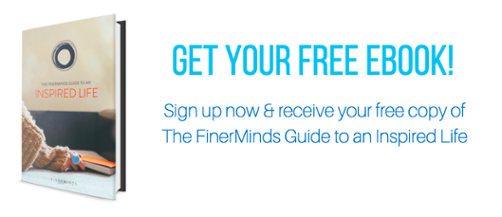As we enter Fall, the days continue to get shorter as the darkness of winter approaches. This can be a challenge for many people as they struggle to adapt. When this becomes more extreme, western medicine calls this Seasonal Affective Disorder (SAD).
SAD is a mood disorder where people who have normal mental health throughout most of the year exhibit depressive symptoms at the same time each year, most commonly in the fall and winter.
Symptoms of SAD may include: feeling depressed, losing interest in activities you usually enjoy, low energy, problems sleeping, feeling sluggish or agitated, difficulty concentrating, and feeling hopeless, worthless or guilty.
While doctors have a label for it, they also readily admit specific causes of SAD are unknown and only point to things they think may contribute. I believe part of the reason why many people experience symptoms of SAD is because of an unbalanced relationship to the cycles of nature.
I love the fall! It’s not because of the beautiful colors of the turning leaves, the cool fresh mornings while the sun is still warm. I do enjoy these aspects, but they’re not the direct reason I love fall, they’re more a consequence of something very special happening in nature at this time of year.
I know people who really struggle with this time of year with feeling down and often complaining about the weather, but for me, it’s quite the opposite, and I’d love to share with you why and how it could be for you too.
Our Connection to Nature

For me, it all starts with my connection to nature. As human beings, we have a physical body, but it doesn’t really exist independently of the earth.
Think about your physical body. It’s made from the material of nature. We eat food that comes from nature (most of it), we digest and absorb it, and this amazing process takes place inside us, transforming the food in our body. The food from the earth builds our body, so we’re essentially made of what we eat.
Also, consider our body is roughly 60% water (this can differ slightly depending on various factors such as age and sex).
We are part of nature, and as a result, we’re affected by its cycles.
Cycles
One of the most apparent cycles we are affected by is the 24-hour cycle of day and night.
In the morning as the sun rises and nature is waking up, so do we. During the daylight hours, we’re typically awake and active. The sun sets, the darkness of the night arrives, and we usually rest, sleep and rejuvenate.
Of course, some people work overnight shifts and sleep during the day. But if we don’t have a specific reason to stay up through the night, or when we’re not overstimulated by computer or smartphone screens, we naturally rest and sleep.
Our body is designed to sleep at night. It responds to the night by releasing melatonin. This hormone, released from the pineal gland, helps regulates sleep, but it’s the darkness that triggers the gland to release it.
This is a scientific explanation, but we don’t need to understand science to know what we experience in our body. We can understand things theoretically as much as we want, but if we don’t apply it to our experience, it really doesn’t mean very much. It’s interesting, but it’s not transformative.
Take a moment to reflect on how you feel when the sun is rising, and the daylight increases? What does your body naturally want to do?
Now, reflect on how you feel when the sun is setting, and it’s getting darker? What does your body naturally want to do?
When I pay attention to how the natural rhythm of day and night affects me, I feel more connected to nature. I feel a sense of wonder and respect for the greater forces of nature that I’m taking part in, and I realize I function better when I don’t fight against nature, for example, I know in myself that if I want good quality sleep, I do it at night.
Seasons

Seasons are basically the same, only on a larger scale.
During the spring nature comes alive, daylight hours increase, flowers, plants and leaves gradually emerge from the cold darkness of winter. Summer brings the heat and nature is in full force at its most active. Fall arrives, nature starts to withdraw inwards, and the leaves fall from the trees as the days become shorter. Winter brings the quietest time in nature, with the coldest and shortest days of the year.
Just like the cycle of day and night, the seasons continue to repeat over and over, and just as our body responds to day and night, it also responds to the seasons.
The cycle of day and night is very much the same as the seasons, with four stages. Spring equates to sunrise, summer to daytime, fall to sunset and winter to night time.
There’s something I’ve noticed in the way most people talk about the seasons that indicates why some people have a hard time with fall and winter.
When spring arrives most people say, “The days are getting longer,” and then when the fall comes they say, “The days are getting shorter.”
How often do you hear people say, “The night is getting longer” or “The night is getting shorter”? Rarely, if ever.
Why?
Our relationship tends to be biased towards daytime. As the seasons change, it’s all about the length of the daylight, but this misses what the night brings for us, which creates an unbalanced relationship to the seasons.
From this perspective, it’s easy to understand why people struggle during fall when they’re losing hours of daylight; they don’t have a relationship to the night, and instead resist it wishing the long days of summer would continue.
What is your relationship to the night? Is it simply a time for sleep?
Fall is the Sunset of the Seasons
When I watch a sunset, I feel this beautiful transition time of nature. The time just before and after the sun descends below the horizon, and before the night has fully arrived, I feel this momentum of nature into quiet stillness of the night. It brings such a sense of inner peace, fullness and a mood of deeper reflection.
Recall a time when you’ve watched a sunset? How did it make you feel?
What I feel in nature during fall is very similar. Nature turning inwards, on it’s way to the quiet stillness of winter. It’s not yet winter, although it’s quiet by contrast to the summer. There’s a momentum toward the stillness of winter, a quietening. This is what I love about fall, and why I never get down about the longer nights. I feel the quiet through my whole being.
Fall is the sunset of the seasons. It’s like a slow sunset extended over a few months, depending on where you live in the world. Whether it’s day or night, this magic of fall is happening in the background, and there’s an opportunity to ride the flow of nature and turn inwards into our self.
The Quiet

The biggest reason why I feel so moved by fall is because of what I’ve experienced through meditation.
Meditation is a process of turning inwards, away from distractions (external and internal) and stress, quietening the mind from the chaos of our thoughts. Through the exploration of my own inner nature, I find a deep quiet stillness that exists inside me.
When I sit to meditate, there is a phase of quietening, and just like the sunset and fall, there is a momentum into a quiet stillness that is simple, peaceful and clear. It brings alertness and restfulness into my body and mind.
Over time I’ve developed a relationship to this quiet stillness that’s become part of me. When fall arrives, the movement of nature into quiet stillness speaks to and highlights the quiet stillness inside me.
There is something deeply moving for me in nature during fall that brings a fullness and an inner quiet.
“Without understanding yourself, what is the use of trying to understand the world?” – Ramana Mahashi
What can you do?
If you find yourself getting down this fall, remember, it’s an opportunity shift your usual perspective and quiet the chaos of the thoughts, emotions, and dramas that often fill your mind leading to stress and anxiety.
Remember, we’re inherently connected to nature. Don’t resist it. Learn from it.
Most importantly, cultivate a relationship to nature that allows you to enjoy every aspect of the seasons.
Sunsets

Take some time to witness the sunset. You don’t even have to see the sunset, although if you can, great! It’s not so much about seeing the actual sunset, it’s more about this phase around sunset. There’s no exact timing, but 30 – 60 min before and after is usually more tangible.
If it’s raining or overcast, you can still pay attention to this phase of sunset.
Allow yourself to be quiet and simply notice how nature is becoming quiet and how that makes you feel. It’s not night time yet, but there is this momentum towards it.
Don’t think about it. Feel it. Can you feel the quietening inside you? Do you naturally feel more reflective?
The more you feel it, the more it will help take you out of your thoughts and awaken a sense of peace and quiet inside you.
When you’re more familiar with this turning inward quality of nature, you can more easily feel the quietening of the fall and really appreciate this time of year. This is about finding the part of you that’s connected to nature and knows how to be quiet inside.
Meditation

If you don’t meditate, begin.
If you already meditate or you’ve tried but struggled, you might find that by taking time to do the sunset practice above it will make your meditation practice more effective, because the part of you that can feel the quiet in nature is also the part of you who can actually meditate.
Meditation teaches us how to find stillness and clarity inside us and let go of the chaos of thoughts, emotions, and stories that constantly fill our mind.
The more we find the quiet inside us, the more we can appreciate the quiet in nature during fall. Symptoms of stress, anxiety or even SAD can be seen as a reflection of our relationship to both nature and our self. Deepen the relationship, lessen the symptoms.
The quietening that happens in meditation is very similar to the quietening of sunset and fall. Knowing this will help you build a relationship with nature (and yourself). So as fall comes, you can enjoy what the season has to offer.
Where ever you’re at in your meditation practice, you can learn a lot from nature. The earth knows how to be quiet, and we can learn so much from nature about being quiet. Nature, especially at this time of year can help awaken the part of us that knows how to be quiet and still.















